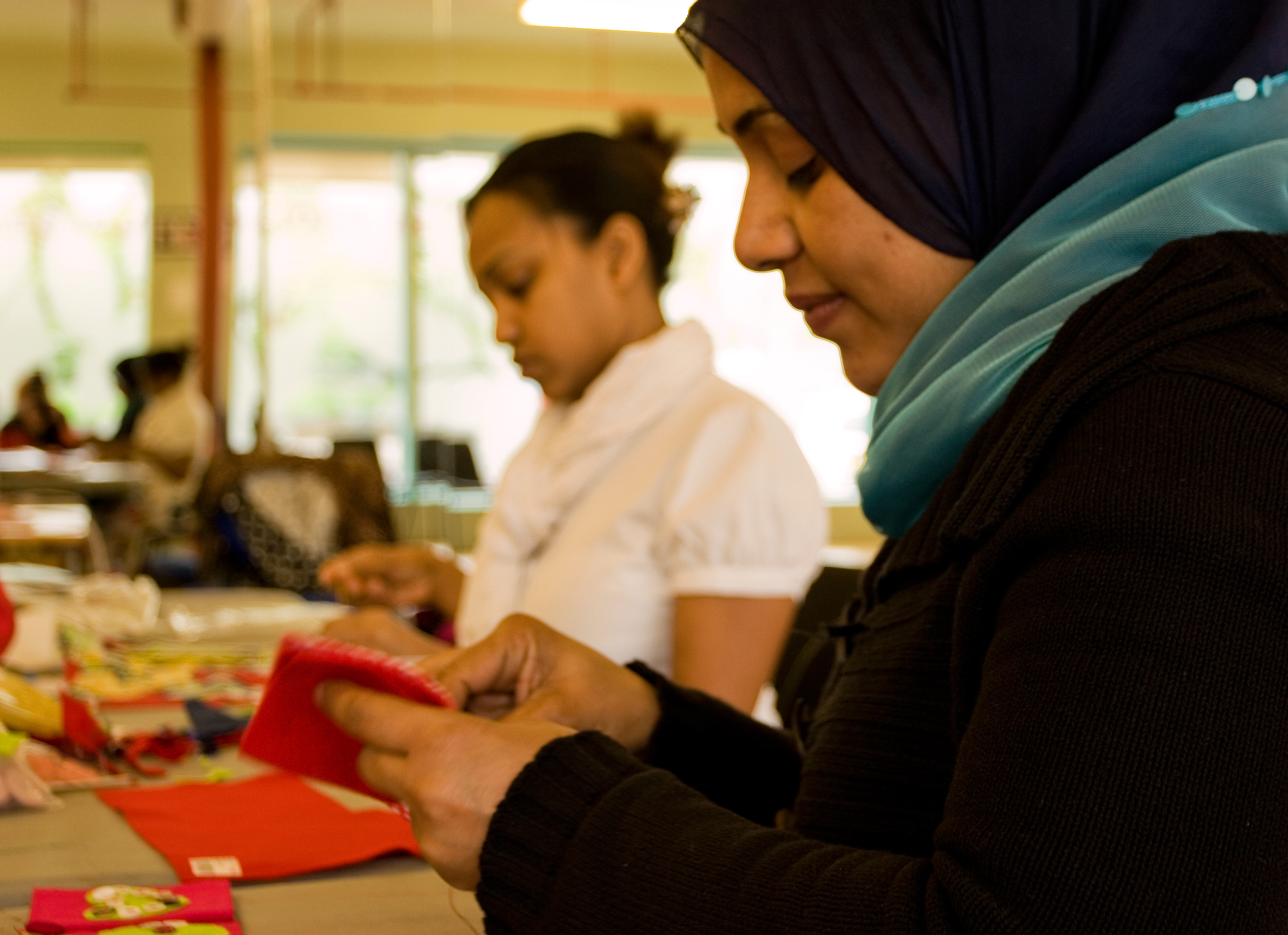“English language skills are empowering. This can be a threat to existing dynamics and personal relations of power.”
Roughly 726,000 people living in England and Wales cannot speak English well. At least 138,000 cannot speak English at all. Out of this, 91,840 of these people are women – a significant majority.
English proficiency is an essential tool for life in the United Kingdom; one which native English speakers take for granted. There is currently no national strategy for English learning in England, unlike in Scotland and Wales. However, strategies in Scotland and Wales have failed to address the impact of gender on access to learning.
In September 2016, research was conducted to address this gap and bring the voices of refugee and migrant women to the forefront of the debate. The report, ‘Why refugee and migrant women aren’t able to learn English’, was published by the Wonder Foundation, a women’s network that promotes empowerment through education.
![The women in this picture were not interviewees for WONDER's report [Image credit: WONDER]](http://the-ipf.com/wp-content/uploads/2016/10/26176006712_e43d57d249_o.jpg)
Around 91,840 of women in England and Wales cannot speak English well. *The women in this picture were not interviewed for WONDER’s report* [Image credit: WONDER]
Barriers to learning English for migrant women
Wonder Foundation’s research revealed that there are some major practical barriers to women learning English. These include the cost and location of language classes. The complexity of the benefits system means that women are often left unsure whether they are eligible for funding for the courses. When free classes are offered, they are sometimes unaccredited.
Olivia Darby, Wonder Foundation’s Director for Policy and Campaigns, told the IPF:
“[For many women], the only work open to them would be unskilled, low paid and often difficult, for example, contract cleaning and split shifts. This meant that they were not able to attend normally scheduled classes, especially if they also had caring responsibilities.”
Another obstacle is linked to the women’s existing level of literacy. The research included interviews with some women who were illiterate in their own language or unfamiliar with the Roman alphabet.
For starters, illiteracy prevents women from knowing that language classes exist, having the confidence to sign up, travelling to the class, and learning while there. The report revealed that, in many cases, it took women a number of years before they enrolled in ESOL (English for Speakers of Other Languages) classes.
Family opposition as a barrier
Apart from practical barriers, the Wonder Foundation’s research also revealed that there were personal and internal barriers to women learning English. While low self-confidence and poor mental health sometimes played a part, there were also cases of women being unable to juggle multiple responsibilities. Other instances saw barriers presented by the women’s families.

Mental health and family life are some of the barriers stopping women from learning English. *The women in this picture were not interviewed for WONDER’s report* [Image credit: WONDER]
As part of the report, Wonder Foundation interviewed women who survived domestic violence. Olivia said: “I was so impressed by their courage and resilience. There must be so many women still living in similar situations, without the freedom to even think about accessing English classes.”
English language skills are empowering. This can be a threat to existing dynamics and personal relations of power. One woman shared her story with the Wonder Foundation:
“My husband, he stopped me. [He would] say, ‘Why do you need to read?’ He would just tell me where to sign.”
Creating empowering learning environments
Through their discussions with a number of migrant women, the Wonder Foundation was able to come up with key actions that could lessen the women’s barriers to learning.
One of the recommendations was for ESOL classes to be settings where women could make friends and build their confidence outside the house. They urged creating “empowering spaces” where women feel safe and welcome, adding that this was crucial in developing their confidence to try new things.
Women-only learning spaces were also encouraged. It was suggested that ESOL classes that don’t adopt a “whole person approach” are failing to address the true needs to English language learners and, therefore, do not help empower women to make the most of their new language skills.
![Around 91,840 of women in England and Wales cannot speak English well. *The women in this picture were not interviewed for WONDER's report* [Image credit: WONDER]](http://the-ipf.com/wp-content/uploads/2016/10/25995562330_056a6d13f5_o.jpg)
WONDER’s report suggests ESOL classes should be places where women can build relationships. *The women in this picture were not interviewed for WONDER’s report* [Image credit: WONDER]
“Learning somewhere that was more intimate where they could form friendships was really important to the women.”
The research also suggested that the women should be given the chance to interact with native English speakers, which would allow them to improve their language skills while also enhancing their integration opportunities.
Aside from these practical suggestions, the Wonder Foundation also listed three main ways that the general public can help support the cause. The easiest way is by writing to their local MPs and asking them to support funding for ESOL classes, as well as donating to organisations such as Baytree Centre or CARIS. Olivia also urged the public go out into the community and make an effort to make migrant women feel more welcome.
“This could be as simple as sharing a cup of tea.”

